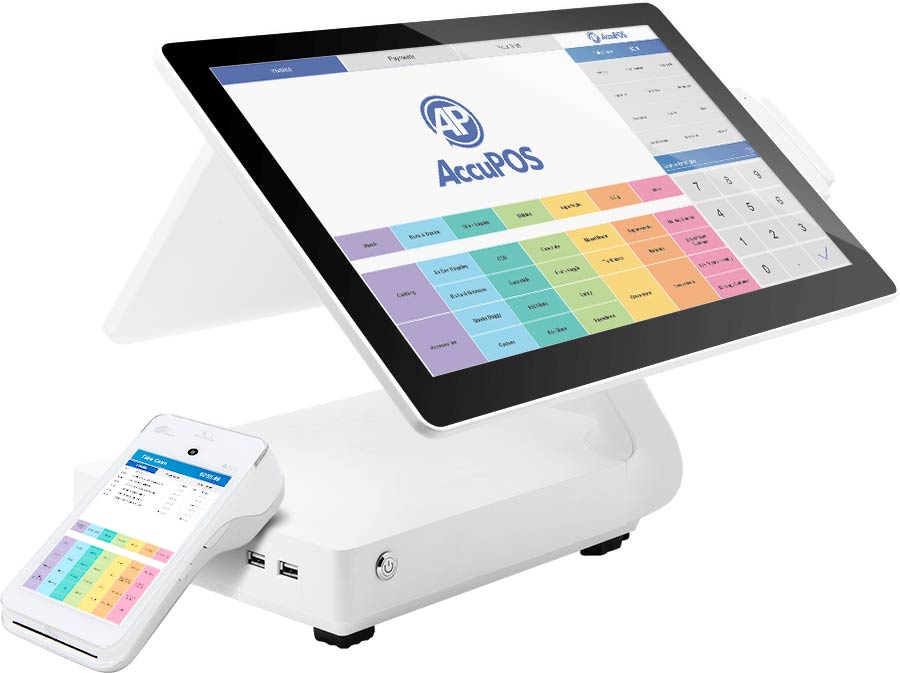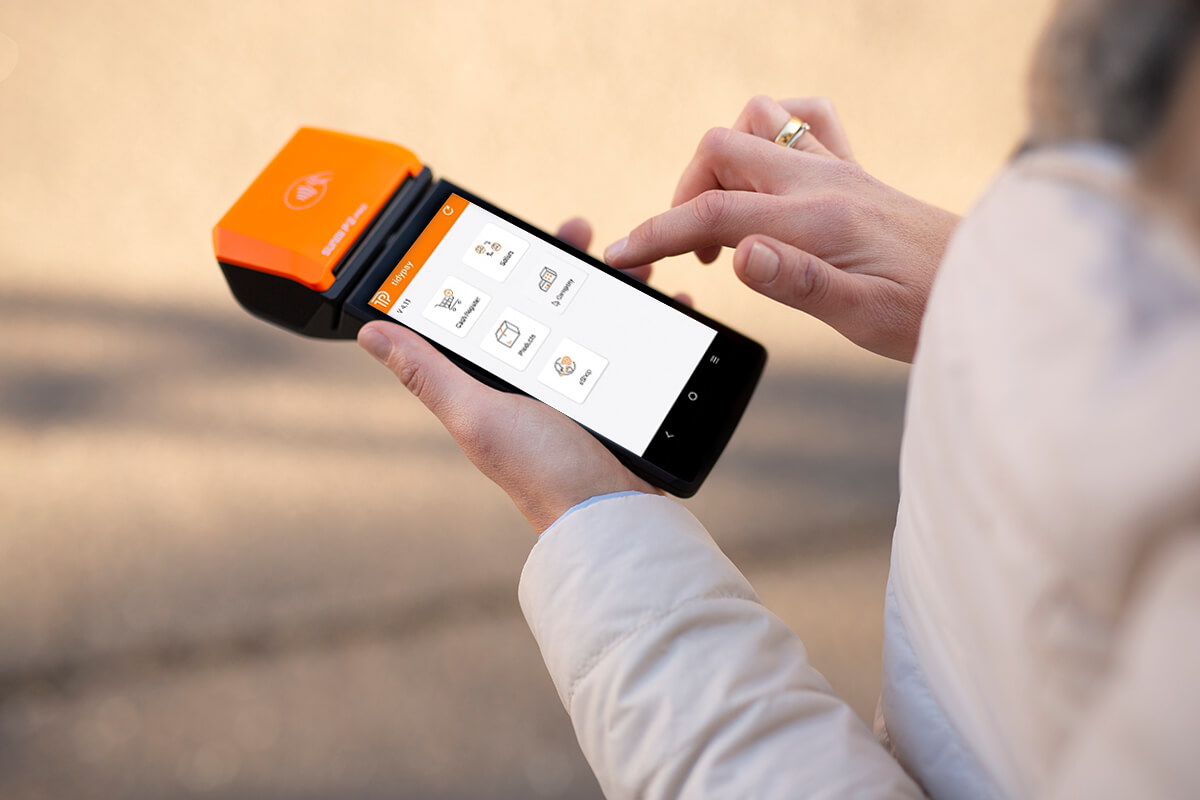The Single Strategy To Use For Clover Pos
The Single Strategy To Use For Clover Pos
Blog Article
Some Known Questions About Point Of Sale Software.

Clover POS: Retail Point-Of-Sale Solutions Streamline Deals
The 15-Second Trick For Clover Pos

Hardware Components of a Point of Sale System What makes a POS system tick? It's not simply software; the hardware plays a starring function. Consider it as the body to the software application's brain. Without the best hardware, even the most sophisticated POS software is just a pretty face. Essential POS Hardware So, what are the must-haves? Let's break it down. The main processing system, typically a computer system or tablet, is the heart of the operation. The monitor or touchscreen display enables staff to connect with the system. A barcode scanner speeds up the checkout procedure. Keep in mind the days of manually going into each code? The dependable invoice printer supplies clients with a record of their purchase. A cash drawer keeps your cash safe and arranged. A card reader permits customers to pay with credit or debit cards. Diving Deeper: Beyond the Fundamentals However wait, there's more! Depending on your service, you may require specialized hardware. For instance, a restaurant may incorporate kitchen printers to relay orders, while a store may use label printers for item tagging. Ever question how your local pastry shop immediately prints those delicious-looking labels? Choosing the Right Hardware: A Balancing Act Choosing the ideal hardware isn't practically purchasing the most pricey devices. It's about discovering the sweet spot between performance, toughness, and budget plan. A small company simply beginning might go with a more standard setup, while a high-volume retailer click here will need robust, high-performance devices. Is it better to buy new or utilized? Consider your alternatives carefully. A new system provides the current innovation and warranty defense, but a reconditioned system can save you cash. The Future of POS Hardware What does the future hold? Anticipate to see a lot more integration with mobile devices, biometric scanners for staff member authentication, and advanced analytics control panels showed on larger, clearer screens. Picture a world where inventory is instantly upgraded in real-time as items are scanned-- a world where you can track your best-selling product from throughout the world. The possibilities are endless, and the hardware is continuously progressing to satisfy the demands of today's services. Are you ready to upgrade your point of sale system?
Software Application Characteristics and Capabilities: The Heart of Your POS System
Ever enjoy an experienced barista slide through a hectic morning rush? Their trick isn't simply caffeine; it's a seamless dance with their POS system. The software is the conductor of your business symphony, orchestrating everything from sales to stock. But what notes should you be listening for? What capabilities genuinely matter in today's market?
Inventory Management: Beyond Counting Beans
Forget spreadsheets that haunt your dreams. Modern POS systems use real-time stock tracking, alerting you when your stock of artisanal coffee beans dips precariously low. Think about it as a digital guardian angel, preventing those uncomfortable "Sorry, we're out!" moments to customers. What if you could also predict demand based upon historic data? Numerous systems now offer forecasting tools, a powerful weapon against overstocking and lost sales. This helps avoid the dilemma of running out of popular items or building up excess inventory of slow-moving items, both of which can constrain money flow and area.
Sales Reporting and Analytics: Translating the Data
Sales data is the brand-new gold, and your POS system is the miner. Forget simply understanding just how much you sold today. Dive deep into the information to reveal trends, determine your best-selling products, and understand consumer behavior. Which menu item sets perfectly with the daily special? Which promotion resonated most with your clientele? These insights are not just intriguing; they're actionable intelligence. Without dependable sales reporting, navigating the intricacies of service decision-making ends up being like sailing without a compass, increasing the opportunity of mistakes and missed out on chances.
Client Relationship Management (CRM): Structure Bridges, Not Walls
Keeping in mind a regular customer's name and preferred order is charming, however scaling that individual touch is difficult. POS systems with CRM abilities permit you to track customer purchase history, preferences, and even birthdays. Think of instantly providing a discount rate on their birthday-- a little gesture that fosters commitment and encourages repeat service. However there is the prospective snag of poor information quality, which can result in incorrect customer profiles and inadequate marketing efforts.
Payment Processing: Enhancing the Transaction
The checkout experience can make or break a sale. Seamless integration with different payment approaches-- credit cards, mobile wallets, even copyright-- is non-negotiable. Can your system handle split payments? Does it use safe tokenization to protect consumer information? A clunky payment process is like striking a sour note in your business symphony, potentially interfering with the entire performance. Guaranteeing compatibility with evolving payment technologies and adherence to security requirements are vital for preserving customer trust and functional efficiency.
Worker Management: Keeping the Group in Sync
From clocking in and out to managing approvals and tracking performance, staff member management includes enhance operations and enhance responsibility. Is scheduling a nightmare? Numerous POS systems offer incorporated scheduling tools, optimizing staffing levels based on anticipated need. A common barrier that is often overlooked is the challenge of incorporating worker management functionalities with payroll systems, which can result in mistakes and inadequacies in wage estimations.
Advanced Features: Leveling Up Your Operations
- Table Management: Suitable for dining establishments, this function allows you to picture your dining room, track table status, and manage bookings.
- Commitment Programs: Reward your best clients and motivate repeat service with integrated commitment programs.
- Online Buying Integration: Seamlessly incorporate your POS system with online buying platforms to broaden your reach.
Picking the ideal POS system is about more than simply performance; it's about finding a partner that can grow with your business. Consider your existing needs, expect future growth, and don't be scared to ask the hard concerns. The ideal software can transform your organization from a chaotic cacophony into a harmonious masterpiece.
Industry-Specific POS System Applications
Consider the local bakery, dynamic with early morning consumers craving fresh croissants. A generic POS system might deal with transactions, but can it handle intricate recipes, track active ingredient stock, or automatically adjust production schedules based upon sales information? Probably not. That is where the appeal of industry-specific POS systems shines.
Dining establishments and Hospitality
For bustling restaurants, speed and precision are paramount. The number of times have you seen servers juggling orders, adjustments, and splitting bills, all while attempting to provide excellent service? A dining establishment POS system enhances these procedures, enabling table management, kitchen order tickets, and even online ordering integration. These systems frequently consist of features like ingredient-level stock tracking, essential for managing food expenses and minimizing waste. Ever question why your preferred dish is sometimes not available? It might originate from a lack of proper stock management.
- Table Management
- Cooking Area Order Tickets
- Online Ordering Integration
- Ingredient-Level Stock Tracking
Retail Solutions
Retail, with its varied inventory and client interactions, demands a various set of tools. Picture a shop clothing store struggling to monitor sizes, colors, and seasonal collections using a fundamental checkout system. An industry-specific retail POS system uses features like barcode scanning, client loyalty programs, and in-depth sales reporting. These systems can even integrate with e-commerce platforms, providing a seamless omnichannel experience for customers. Did you understand some retail POS systems can forecast future sales trends based on historical information? Now that is powerful!
The Hazards of an Inequality
Picking the wrong POS system can create considerable operational difficulties. A clothing store utilizing a dining establishment POS, for instance, would find it inappropriate for handling stock with sizes and colors. The lack of correct reporting and analytics could cause mistaken purchasing choices and lost earnings. The outcome might be comparable to trying to fit a square peg in a round hole.
Key Factors to consider
Picking an industry-specific POS system requires mindful examination. Believe about your organization's distinct needs and operational workflows. Does the system incorporate with existing software? Does it provide the necessary reporting abilities? Is it scalable to accommodate future development? A well-chosen POS system is not just a deal tool; it's a tactical asset that can drive efficiency, improve client complete satisfaction, and ultimately, enhance your bottom line. Keep in mind, it is a financial investment in your business's future, not just a cost.
Security Considerations for Point of Sale Systems
Ever heard the tale of the mom-and-pop shop that lost everything since of a single, neglected security flaw in their POS system!.?. !? It's a cautionary tale, and it highlights a crucial element often eclipsed by the appeal of elegant features and structured operations. The truth is, a POS system is only as excellent as its security. What excellent is a system that crunches numbers in a flash if it enables criminals to swipe client's information simply as quickly?
The Vulnerability Minefield
The digital landscape is a battlefield. Every POS system, regardless of size or sophistication, is a possible target. Are you truly prepared for the threats prowling around the corner? The genuine pinch comes when you discover that your out-of-date software application has a gaping hole that hackers can exploit, turning your business into an unwitting accomplice in identity theft. The trouble is that hackers are crafty and are constantly changing their methods.
Typical Security Spaces and Expert Tips
- Weak Passwords: "Password123" isn't sufficing. Use strong, distinct passwords for all POS system accounts and alter them routinely. Two-factor authentication is a must.
- Unsecured Networks: Your Wi-Fi is like leaving the front door open. Protect your network with strong file encryption (WPA3 if possible) and think about a separate network for your POS system.
- Outdated Software: Software suppliers spot security holes all the time. Failing to update is like welcoming trouble. Establish automated updates or schedule routine upkeep.
- Worker Training: Your personnel is your very first line of defense. Train them to acknowledge phishing attempts, safeguard passwords, and report suspicious activity.
Data Encryption: Your Shield Against the Dark Arts
Think of data file encryption as a secret code. It scrambles delicate info, like credit card numbers, making it unreadable to unapproved users. Without file encryption, your clients' financial information are like sitting ducks, ripe for the picking by cybercriminals. It's not practically protecting your clients; it's about protecting your reputation and avoiding large fines.
PCI Compliance: The Rulebook You Can't Overlook
If you accept credit cards, you're bound by the Payment Card Market Data Security Standard (PCI DSS) It's a set of security standards created to safeguard cardholder information. Stopping working to comply can result in fines, charges, and even the loss of your capability to process charge card payments. It's a headache, yes, but it's a needed one. Believe of PCI compliance as the cost of doing organization in the digital age.
Consider this: every transaction processed through your point of sale is a possible entry point for malicious actors. By carrying out robust security procedures, you're not just safeguarding your organization; you're safeguarding your customers' trust and ensuring the long-term viability of your operations. The security of your POS system isn't just a technical concern; it's a company important. It requires constant vigilance, proactive procedures, and a commitment to staying ahead of the curve.